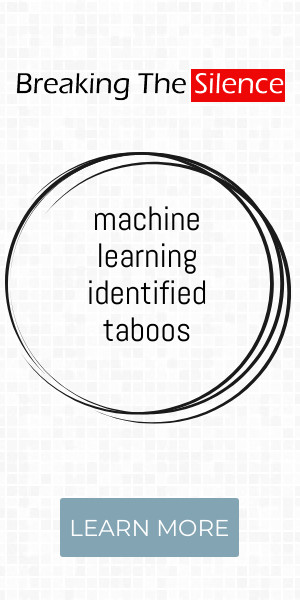The targeted killing of Iranian Quds Force commander Qassem Soleimani last week broke an old taboo: Finally a US president held Iran responsible for the proxies it uses to kill Americans.
It was a strategic victory for President Trump and an opportunity to roll it into a political masterstroke, as well — the immediate and complete withdrawal of US troops from Iraq.
Despite the thousands of American lives and billions of US dollars sacrificed to remake Iraq, Tehran has more influence with Baghdad than Washington does.
Of late, brave young Iraqis have taken to the streets to protest against their corrupt rulers and Iranian-backed Shiite militias.
Since September, more than 500 Iraqis have been killed for opposing the Iranian satrap-state that rules them.
America doesn’t need to be in Iraq to advance and maintain its Mideast interests.
Those who advocate staying in Iraq are arguing largely from an admirable but impractical principle — the US must not cut and run.
From that perspective, surrendering Iraq would give Soleimani one final victory from beyond the grave.
The departure of US forces would restore the regional dynamics to their natural state, in which Iran is a Persian Shiite power surrounded by a sea of Sunni Arabs, more keen for revenge than ever, after the depredations suffered over the last two decades in Iraq as well as Syria.
It was only reluctantly that Obama redeployed troops to Iraq in 2014 after ISIS murdered two American journalists.
In effect, US troops were used as a constabulary force to police Iraq on behalf of Tehran’s new Middle East order, stretching from the Straits of Tiran to the port of Beirut.

They had too much money and institutional power invested in programs requiring a US presence in Iraq.
The Iranians were happy to have American forces stay in Iraq, so long as they kept their weapons pointed at Sunnis in open rebellion against the Baghdad government.
When Trump re-imposed sanctions crippling the Iranian economy, Soleimani directed Iraq’s Shiite militias to target US forces and eventually the American Embassy; he wanted to break the president’s will.
It would be a pity to squander the historic triumph he earned last week: Soleimani’s killing lets us get out of the Iraqi quagmire on a high note.
This comic book is inspired by a journalistic investigation you conducted in 2011 after the appearance of cancers and congenital deformities among American veterans of the Iraq war and Iraqi civilian families.
This was about 5 years after the two great battles of Fallujah, which opposed Iraqi insurgents and the American and Iraqi armies.
If the link seemed obvious to me, it had to be investigated because it was a very political and taboo subject.
Disability is a taboo topic in the Arab world, especially in Iraq, for people who consider it a shame.
So I was marked by those families who agreed to meet me and take up the challenge of showing this taboo of Iraqi society.
Yes, I am optimistic, especially when I see the youth rising up spontaneously in a non-sectarian way, claiming only its Iraqi identity and nothing else.
In this book, I wanted to tell the story of a lost Iraq but also the story of a country’s destruction by its strongest symbol, Fallujah, a symbolic city that was once resisting against the United States.
What is the main challenge of Iraq today?
Iraq’s major challenge is to be autonomous, independent and free of all foreign influence, especially that of Iran and the United States.
But fighting corruption and renewing the entire Iraqi political system is also one of them.
Iraqi politicians and social media users have reacted negatively to an International Day Against Homophobia flag-raising stunt led by Western embassies in Baghdad earlier this week, which triggered calls for foreigners to «respect Iraqi culture and society».
Political figures, clerics, and even regular Iraqis joined in on the criticism and called on Western powers to apologise, highlighting the sharp differences between Muslim-majority democracies and the Western democratic powers that support them.
Despite being hailed in the mainstream media as a small success story within the overall tragedy of modern Iraq, Iraqi Kurdistan has often been beset by allegations of rights abuses, torture, and honour killings.

The colourful LGBTQ flag was raised in Baghdad on Sunday to mark the International Day Against Homophobia and Transphobia, prompting praise but mostly backlash online and in the halls of Iraqi power.
The move was spearheaded by the Canadian and British embassies in the Iraqi capital, along with the European Union Delegation.
«Together with @CanadainIraq and @UKinIraq, today in Baghdad we join EU Delegations worldwide in raising the rainbow flag to mark the International Day Against Homophobia and Transphobia and highlight the rights of Lesbian Gay Bisexual Transgender people», the European Union Delegation to the Republic of Iraq said in a tweet on Sunday, which was also translated into Arabic.
The tweet showed the flag flutter alongside the flags of the EU, Canada and Iraq in Baghdad, prompting a barrage of tweets both in support and opposition to the historic move.
The tweet has since been deleted following a significant backlash by the Iraqi authorities and public figures, with many suggesting it contradicted the values of the local population.
«Raising the flag of homosexuals in Iraq and in the month of Ramadan in particular is a disregard for moral values and a flagrant violation of the Iraqi constitution,» another said.
«This is very disrespectful to the culture of Iraqi people and you can’t encourage tolerance by being disrespectful,» one user added.
Noting the public’s overwhelming disapproval of the move by the Western powers, the Iraqi government was quick to demand an apology.
«We remind all the missions operating in Iraq to adhere by the laws of the country, and to follow diplomatic norms,» it said.
Deputy Speaker of Parliament Bashir Haddad, meanwhile, described the move as a «clear provocation to the feelings of the Iraqi people».
There is no direct legal provision in Iraq banning same-sex intimacy, but the law criminalises extra-marital sexual relations and does not provide for same-sex marriage.
The situation of the Iraqi LGBTQ community is tenuous, and violence is a very real possibility and can erupt at any time against communities that are deemed fringe or taboo
LGBT rights are non-existent in Iraq, where homosexuality, transgenderism, and cross dressing are highly taboo among Muslims and minority Christians alike.
«We refuse and condemn any behaviour that contradicts the culture and religion of the Iraq people. We ask the European mission in Iraq to lower the flag,» read a Sairoon statement.
«We are in a blessed and holy month for all Muslims, and the foreign diplomatic missions in Iraq need to take into account the peculiarities of Muslim peoples,» it added.
Iraq‘s most senior Shia religious authority has also previously issued edicts condemning homosexuality.
Considering how influential Sistani is on Iraqi legislators, it is unsurprising that his edicts have also given force to constitutional clauses that state the civil liberties shall be constrained by «public morality» as codified by Islam.
This demonstrates how the situation of the Iraqi LGBTQ community is tenuous, and violence is a very real possibility and can erupt at any time against communities that are deemed fringe or taboo.
Further in Iraq‘s northern and autonomous Kurdistan Region, the Kurdish authorities have once again come under the spotlight after journalists were arrested for covering a protest last week.
The Committee to Protect Journalists has called on the Kurdish Iraqi authorities to immediately drop all charges against four journalists who were arrested last week for covering a protest in the city of Duhok.
Four reporters were released several hours later and the remaining four were detained until Monday, when they were released on bail set at 2 million Iraqi dinars .
Miguel Delgado, CPJ’s Middle East and North Africa Representative, said: «Once again the Kurdish authorities in northern Iraq have used the laws at their convenience to stamp out news coverage that makes the government uncomfortable».
Further in Iraq‘s northern and autonomous Kurdistan Region, the Kurdish authorities have once again come under the spotlight after journalists were arrested for covering a protest last week
Attacks against the press frequently occur in Iraqi Kurdistan and it has become an almost regular feature of the news cycle in the area.
Kurdish journalists have flocked to Europe after decrying conditions in Iraqi Kurdistan.
While Kurdistan was viewed as a bastion of calm and a model for the rest of Iraq after the US-led invasion in 2003, increasingly more stories have been emerging of its human rights abuses, corruption, and a lack of a free press, tarnishing its image as an oasis of peace.
With the Iraqi economy worse than it has been in years due to the double impact of rock bottom oil prices and the coronavirus pandemic, this is likely to cause a nervous political elite in Kurdistan to tighten controls ever further to ensure their grip on power remains unchallenged by a discontented population.
The Iraq Report is a fortnightly feature at The New Arab.
Avey claims that the non-nuclear state’s leaders do not abide by the nuclear taboo while challenging a nuclear-armed adversary.
To support his argument, Avey examines Iraq’s confrontational policies toward the United States in the 1990s, Israeli decision-making toward Egypt in the late 1960s and early 1970s, Beijing’s hostility toward the United States in the 1950s, and Soviet-American tensions in the early days of the Cold War.
Iraq, for example, invested in expensive civil defense options at the time of the Gulf War.
And yet Avey, in presenting his main case studies, does not convincingly refute the nuclear taboo counterargument.
Although Israel has never publicly acknowledged its nuclear arsenal, these weapons were acquired too recently for Israeli decision-makers to have fully internalized the nuclear taboo at the time of the October War.
That leaves Iraq as the most recent case.
Not only are they showcasing taboo topics such as racism, inter-racial relationships, abortion and wanting to raise a baby with Down Syndrome, these actors will be subject to something most actors don’t deal with — the direct interventions of the audience members.
I immigrated to Canada from Iraq in 2007 to pursue a PhD in Theatre Studies at York University.
It opened me up to a multitude of possibilities for creating sustainable change in how we address issues both in academia and in broader communities and I began to explore changing the learning environment in Iraq.
Having been educated in very formal Iraqi educational institutions, Freire’s analysis of oppression and education resonated deeply with me: for him oppression is an educational process that is performed and replicated throughout society that kills creativity and engagement and instills passivity enabling complicity with dominant ways of relating.
His contentions bore a striking resemblance to what I experienced as a student in Iraq.
President Donald Trump has accelerated the collapse of taboos on all issues including Israel’s standing and relations within the U.S. political landscape.
The Cold War allowed Israel to play an essential role in U.S. foreign policy, but the diligent and systematic organizing work of AIPAC and American Zionist organizations translated the alliance of convenience into an untouchable taboo in American politics and media discourses.
Israel’s role in the post-Cold War era began to take a decisive turn in the U.S. build-up and push for the 1990-1991 invasion of Iraq.
More critically and after the Gulf War, Israeli leaders called for neutralizing and removing Iraqi President Saddam Hussein from office due to his continued support for the Palestinians, which led to the U.S. ‘ adoption of a new policy on Iraq.
«A clean break» for Palestinians was translated into large settlement activities, land confiscation and unrestrained Israeli violence, while regionally as an urgent call for regime change in Iraq, which finally was adopted by the U.S. government.
The push to commit U.S. troops directly in the Arab world and the move toward military operations in the region is directly connected to the collapse of the political taboos related to Israel and Zionism.
Regime change in Iraq meant an end to the «peace process» as an avenue to address the Palestinian-Israel conflict and an open-ended regional war to remove any opposition to normalizing relations with Israel.
In reality, the U.S. has had total domination of the regional landscape without having to commit troops or adopt a regime change by military force in Iraq.
 The consequences of direct U.S. military intervention and troop deployment into the battlefields in Iraq was the beginning of the cracks in public discourses around Israel and Zionist taboo in politics.
The consequences of direct U.S. military intervention and troop deployment into the battlefields in Iraq was the beginning of the cracks in public discourses around Israel and Zionist taboo in politics.
As long as the debates in the U.S. were confined to AIPAC’s efforts to cement the alliance with Israel, increase foreign aid, provide protection for Israel against international consequences and isolate the Palestinians regionally and globally, then the taboo and limits in public discourse were maintained.
However, once the U.S. committed troops and became involved militarily, then all bets were off, whereby discussions and debates regarding Israel and the political taboos on its role in U.S. foreign and domestic policies were no longer sustainable.
Initially, it was on the margins of America’s political landscape, but as the military deployment dragged-on and the complexity of the conflicts became apparent, Israel and its lobby were no longer in a position to maintain the political taboos, which included a split within the ranks of the American Jewish community itself.
The current realignment in the Democratic Party is a definite indication of the shattering of the political taboos in relation to Israel and Zionism underway in the country.
This process started much earlier than the arrival of the 2018 midterm elections and the newly elected class of Democrats, which includes a number that was not only ready to take Israel to task on human rights violations but also to speak on the untouchable taboo, namely the Boycott, Divestment and Sanctions movement.
The fact that democratic members in Congress are ready to push back against AIPAC and Israel is evidence of the breaking of the taboo and a readiness to shift the conversation.
Trump’s arrival on the political scene and his readiness to break all political, social, racial, gender and cultural taboos is another critical contributing factor to the shift.
The text of this article was generated by the Breaking The Silence system that collected 6 news articles posted on the web from January 2019 to September 2020 and clustered for the taboo subjects related to Iraq














































































